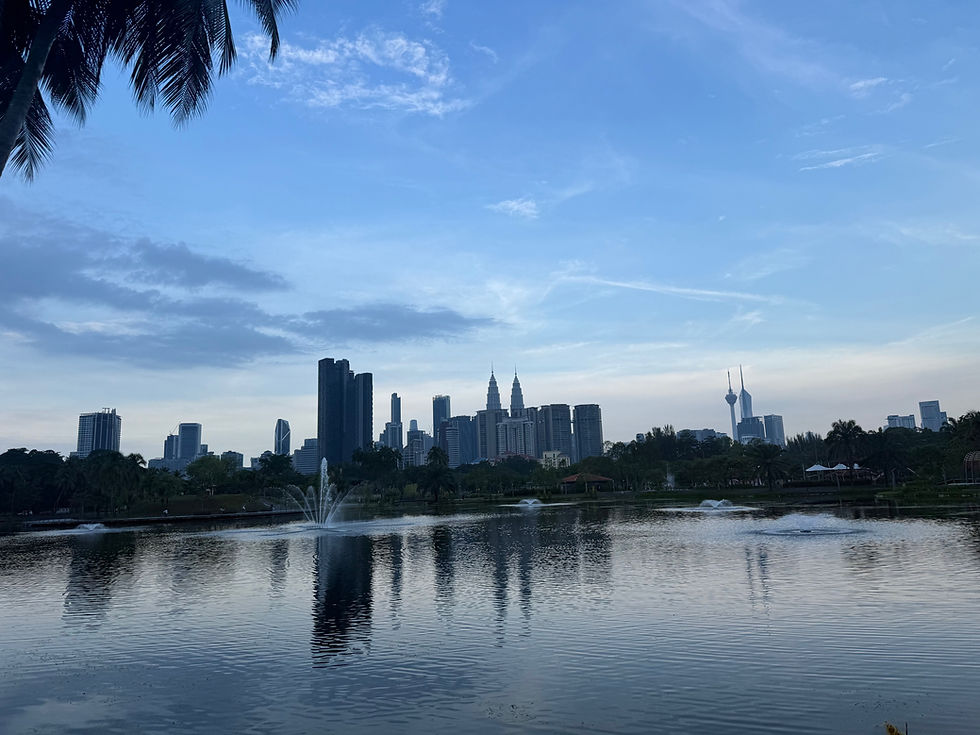For All the Talks of Its Western Bona Fides, Turkey Sure is Acting Eastern European
- Nikola Ranick
- Jun 30, 2018
- 3 min read
Updated: Jul 8, 2020
For those unaware, despite a surprising last-minute shift in polling and the accompanying uncertainty, Turkey’s President-turned-autocrat Recep Erdoğan and his AKP (Justice and Development Party) cleaned the clock in the most recent election, with both either taking an outright majority or a coalition-majority. The new government post-election will be the first under Turkey’s new constitution, which further pushes powers into the president’s hand, amidst an already crippled the free press and faltering democratic institutions. The election was anything but fair or free but the results themselves are still powerful and speak to the inevitable popularity that is Erdoğan…or perhaps it speaks more so to Turkish Voters’ disgust with Western style Democracy. The countdown towards this new more authoritarian Turkey began rather ironically, with a coup attempt around two years ago. Despite the minority in the army’s failed efforts to overthrow democracy, the fallout after this failure all but accomplished the goal anyway. And we must keep in mind that this turn was more than just a decision of Erdoğan. Many regional analysts and historians point out how Erdoğan moves with the national winds-once a global-minded reformist, now a more conservative quasi-authoritarian. Erdoğan correctly perceived where the country was going, such as its preference of economic growth over political rights, and its disliking of more liberal democratic highlights (despite Ataturk’s efforts to push Turkey away from religion, Muslims overwhelmingly dominate demographics and have become increasingly political in recent years).
As I watch global liberals tearfully mourn the state of Turkey’s Democracy, I do find myself chuckling at the ironic come-about that Turkey has experienced. In previous decades, so much of the debate between Ankara and Brussels was less about refugee flow and more about its possible Europeanness, if it belonged in style, development, or religious preference with the EU. That debate seems to all have expired, yet Turkey is more and more looking like the very Eastern European Countries that questioned its merits the hardest! Hungary just experienced an even more pronounced win by virtual autocratic Viktor Orban and his Fidez Party, Jaroslav Kaszynski may be M.I.A. but the Law and Justice Party still runs every branch of government in Poland, and even the other two members of the Visegrad Four (Czech Republic and Slovakia) look to be tilting more and more towards illiberalism. This shift, like Turkey’s, has come with excuses of outsider intervention and religious/racial emphasis. Indeed, Ankara’s biggest different is that it is majority Muslim, but its identity-politics style seems freakishly like those to its North. If anything, the biggest difference between Eastern Europe and Turkey is that at least illiberal regimes in EE have positive economic qualities! Indeed, for all the uncertainty and uncomfortably that accompany the likes of PIS and Fidesz, their countries’ economies have hummed along with impressive growth and standard of living progressions (in no small part due to general EU subsidies and favorable policies). Meanwhile, the once economically-astute Erdoğan administration has given in to family cronyism, investor uncertainty, and financial misconceptions (can someone please convince him that lowering interest rates does NOT reduce inflation??).
Where do we go from here? I will say that despite my simplistic comparison, Turkey is very clearly much more autocratic than its northern neighbors. Its institutions are weaker and its crackdown more severe. Economic growth will probably still be disappointing but complacency amongst investors may be the golden vision for Erdoğan at this point. Plus, with strategic investments right before elections and within swing areas, the AKP should be just as long-lasting as Fidesz and PIS have been, if not longer. Its EU membership will obviously not be going anywhere though, but that was the case regardless. And this has everything to do with the Club Benefits approach: It is one thing for Poland and Hungary to be illiberal. After all, they’re already a part of the EU (and, again, some of its biggest successes). But as an outsider, Turkey starts off with a disadvantage it just won’t be able to jump over, especially with anti-Muslim sentiments still sky-high and growing (despite an overall downturn in the European refugee crisis). Right now, Turkey’s greatest strength is in its population numbers and a total GDP in the Top 20 because of such.
Yet the optimist in me still wonders ‘what if’ about this sad state of political affairs. Ultimately (and perhaps ironically), illiberal regimes require public support more than liberal ones, as their rule usually has less legitimacy. So much like Eastern Europe, the people, when mobilized, will likely have full capability to sack their leader. In Turkey, especially with a history of repression and despotism, this is a harder feat, but it is still very much a possibility. And with comparable living standards a more prevalent factor, we could see a quicker souring of Erdoğan’s support if economic foundations become any weaker than they have already become. After all, that was a reason this election became close in the first place.






Comments